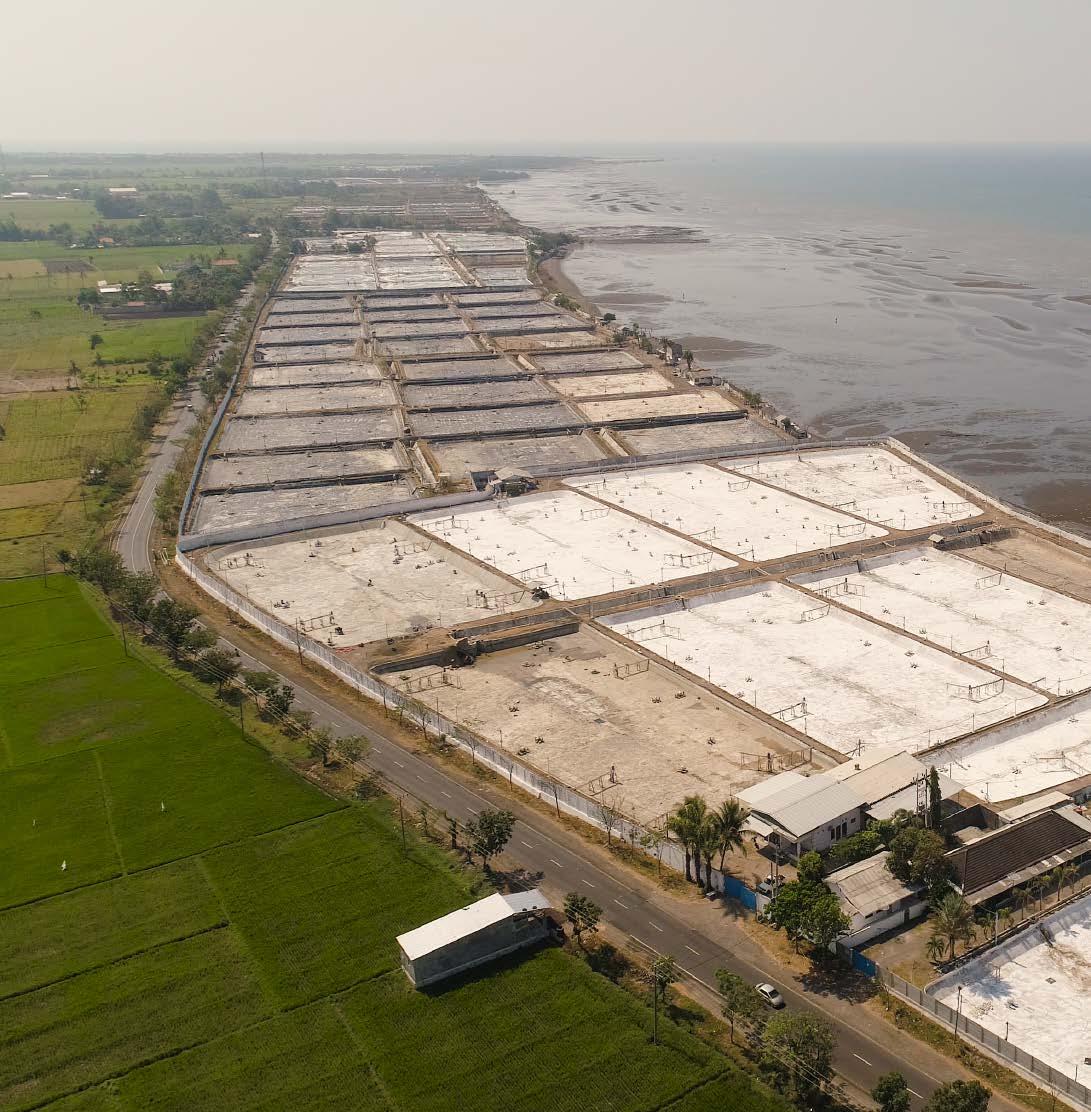ARTICLE
Marine Finfish Aquaculture Research and Development
at the University of Miami By: Daniel Benetti, John Stieglitz, Jorge Suarez, Ron Hoenig, Carlos Tudela, Zack Daugherty, Charles James McGuigan, Jia Geng, Shubham Mathur, Yole Buchalla, Julio Camperio, Luiz Anchieta* The University of Miami Aquaculture Program has been playing a major
role in spearheading advanced aquaculture technologies. Research and academic programs are centered on innovative approaches to ensure that seafood production is science-based, wholesome, environmentally sustainable and economically viable. We are engaged in collaborations around the world and are recognized for our contributions to the field – particularly for the development of challenging and high-value marine species, technology transfer activities and the education and training of top professionals at all levels.
Professor and Director of the University of Miami Aquaculture Program, Dr. Dan Benetti, with a red snapper broodfish.
36 »
T
he academic program encompasses undergraduate and graduate level courses covering everything from basic concepts to science, environment, management, social and economic aspects of sustainable aquaculture, regulatory issues, business and production models, all the way to seafood market and marketing. At the graduate level, students have the opportunity to pursue Master of Professional Science (MPS), Master of Science (MS), or Doctor of Philosophy (PhD) degrees. Undergraduate and graduate students are trained in state-of-the-art aquaculture techniques and technologies, as well as advanced research skills that prepare them for careers in the public and private sectors. The program thrives on innovative research and development concepts focusing on emerging technologies. The UM Aquaculture Program has graduated and trained over 150 professionals who are leading the field operating in all aspects of aquaculture –from academic, research, and government positions, with a majority working in the private sector. The UM Aquaculture Program consistently attracts highly-motivated and hardworking applicants, and the majority of our graduate students engage in paid internships with most being hired before or just after graduating. Job placement for our graduates has historically been nearly 100 percent. Our network extends literally the world over, and our talent pipeline is the program’s best asset. A central component of the Program is the renowned, Global GAP-certified, University of Miami Experimental Hatchery (UMEH), with dry and wet laboratory facilities, numerous broodstock maturation systems for conditioning fish to spawn volitionally, a number of larval rearing and nursery tanks of various volumes for experimental trials and commercial-scale fingerFEBRUARY - MARCH 2021









